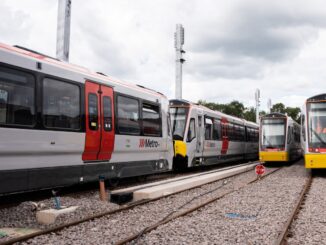
The long-term ambition of the Welsh Government is to have around 30 per cent of Welsh workers working from home or close to home, even after the threat of Covid-19 is over.
The Coronavirus restrictions have resulted in fewer people working in offices, which has resulted in a fall in road congestion, pollution and private car use.
So now the Welsh Government has said it wants to give workers across Wales more flexibility to work remotely, believing this has the potential to drive regeneration and economic activity in communities. This would be achieved by driving changes to Wales’ working culture that would give more people the choice to work in a way that helps their productivity as well as their work-life balance.

Welsh ministers have also recognised the importance of learning lessons on issues such as mental health support, childcare arrangements and more innovative housing design.
Establishing a network of community-based remote working hubs is also being explored, to offer choices beyond a simple home/office split. These hubs, within walking and cycling distance of people’s homes, could be used by public, private and third-sector employees. They could also help encourage new partnerships to develop between Welsh Government, local government, industry, and others.
The intention is to develop a hybrid workplace model, where staff can work in the office, at home, or in a hub location. The aim is that this will enable 30 per cent or more of workers to work remotely, helping reduce congestion and pollution and improving work-life balance for employees and employers.

Lee Waters, Deputy Minister for Economy and Transport in the Welsh Government, said: “The UK Government instruction for everyone to go back to the office is not one we are repeating in Wales. We believe many people will want to continue to work remotely in the longer term and this could be a step-change in the way we work in Wales.
“We are also conscious of the needs of those for whom – for various reasons – home working is not a viable option and will be exploring how a network of community-based remote working hubs could be created in communities.
“We have an opportunity to make Wales a country where working more flexibly is integral to how our economy functions, embedding a workplace culture that values and supports remote working.
“We aim to see around 30 per cent of the Welsh workforce working remotely on a regular basis.”
Of course, having so much of the population working for home will not only reduce road congestion and pollution, but will also reduce the demand for rail travel as part of the commuting process. This could change the viability of some schemes, including the development of South Wales Metro and the redevelopment of the Valley lines.





Be the first to comment